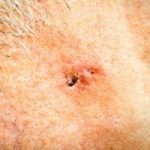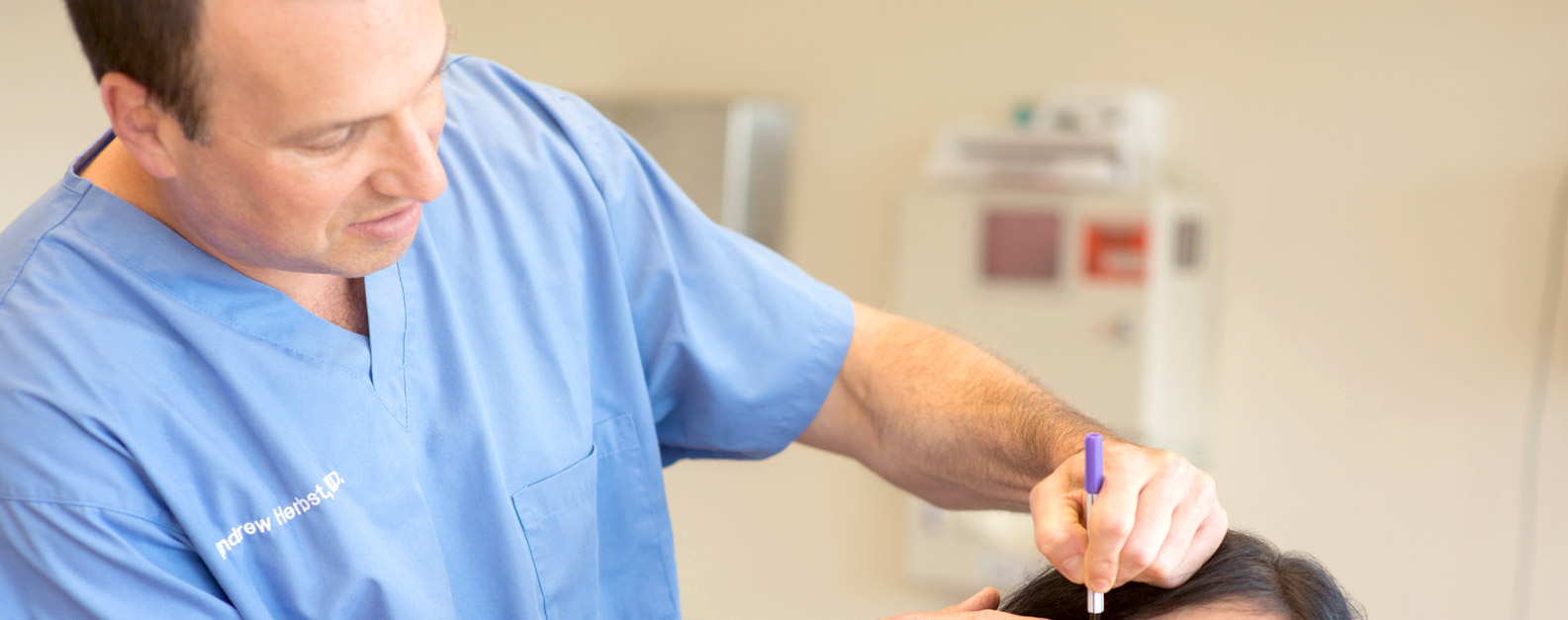The Most Common Form of Skin Cancer is 99% Curative
Basal Cell Carcinoma (BCC) is a type of skin cancer that originates from damaged cells in the top layer of the skin. It is the most common type of skin cancer and is often seen in areas that receive the most sun exposure like the head and neck. It can also be seen on the hands, arms, chest, legs, and back. Occasionally it is seen on non-sun exposed areas as well.
Risk factors:
- Fair skin and light eyes
- A history of sun exposure
- A history of sun burns during childhood
- Tanning bed use
- A history of receiving radiation
- Taking medications or having a condition that suppresses the immune system
Signs and Symptoms:
- A skin colored or pearly bump
- A rough patch of skin
- A scar without trauma
- Any growth that bleeds, flakes, or doesn’t heal

Basal Cell Carcinoma
Diagnosis:
Basal Cell Carcinoma is diagnosed by removing a small sample of skin under local anesthetic and having it examined under a microscope by a dermatopathologist.
Treatment
- Small growths on the arms, legs, back and chest can be either scraped out under local anesthetic (electrodesiccation and curettage) or removed with an excision and the resulting wound sutured.
- Treatment of larger skin cancers, those located on the head, neck, hands and feet, or those that have been treated previously and recurred can be removed with a procedure called Mohs micrographic surgery. Mohs surgery involves removing the tissue in layers and examining under a microscope at the time of surgery followed by a repair.
- Certain types of BCC confined only to the outermost layer of the skin and located on the body are amenable to treatment with a cream called Imiquimod that helps the immune system eliminate the tumor.
- Advanced BCC that is not able to be treated surgically can be treated with an oral chemotherapy pill called Erivedge.
- Radiation therapy can be used in certain cases and when surgery is not an option.
Course and Prognosis
- The prognosis for Basal Cell Carcinoma is excellent with proper treatment.
- While BCC is the most common skin cancer, it accounts for less than 1% of all cancer deaths.
- BCC is usually slow growing and almost never spreads to other parts of the body.
- Of the treatment options, Mohs surgery has the highest cure rate. Mohs surgery is 99% curative.
- If treated by electrodesiccation and curettage or surgical excision, cure rates are 90-95%.
- If treated with Imiquimod cream cure rates are 70-80%.
- Radiation is 70-97% effective depending on how advanced the skin cancer is.
- When Erivedge is needed for advanced cases, 20% of tumors will show a response to treatment.
- The five year recurrence rate of basal cell carcinoma with Mohs surgery is 1%. With surgical excision it is approximately 5%.
- If left untreated, BCC can destroy the surrounding skin and tissue underneath, and invade nerves and other important structures.
- According to the National Comprehensive Cancer Network (the NCCN), 30-50% of patients diagnosed with BCC will develop another non-melanoma skin cancer within 5 years.
- Regular skin examinations are recommended for early detection of future skin cancers.

